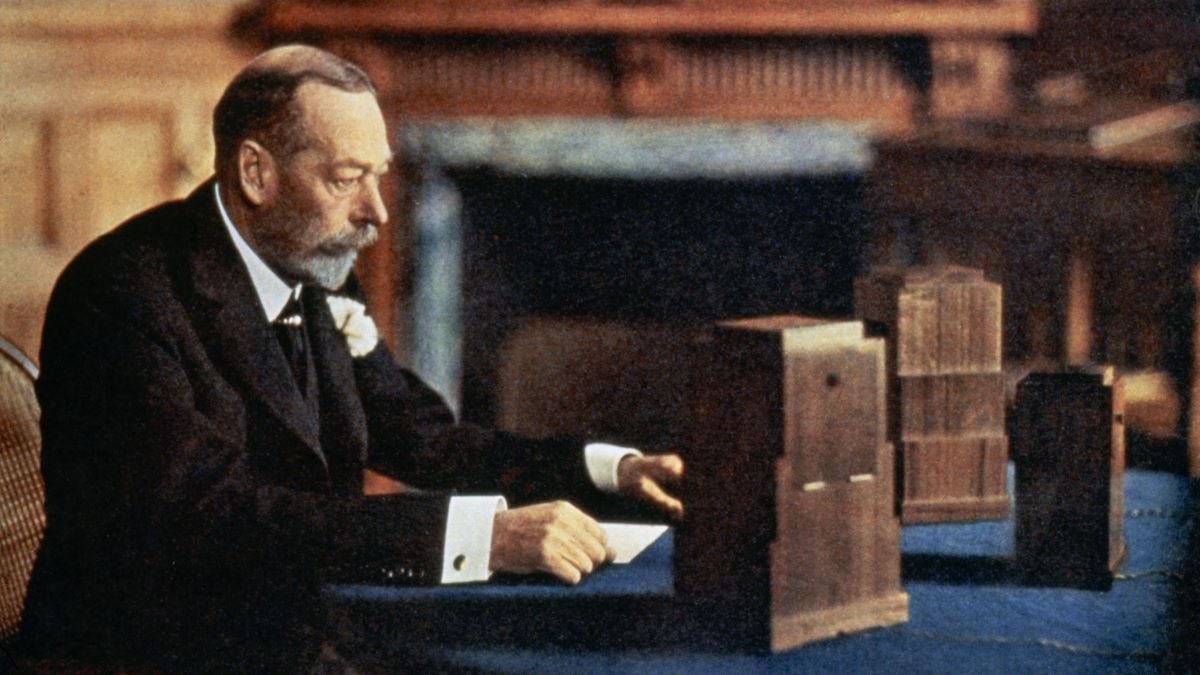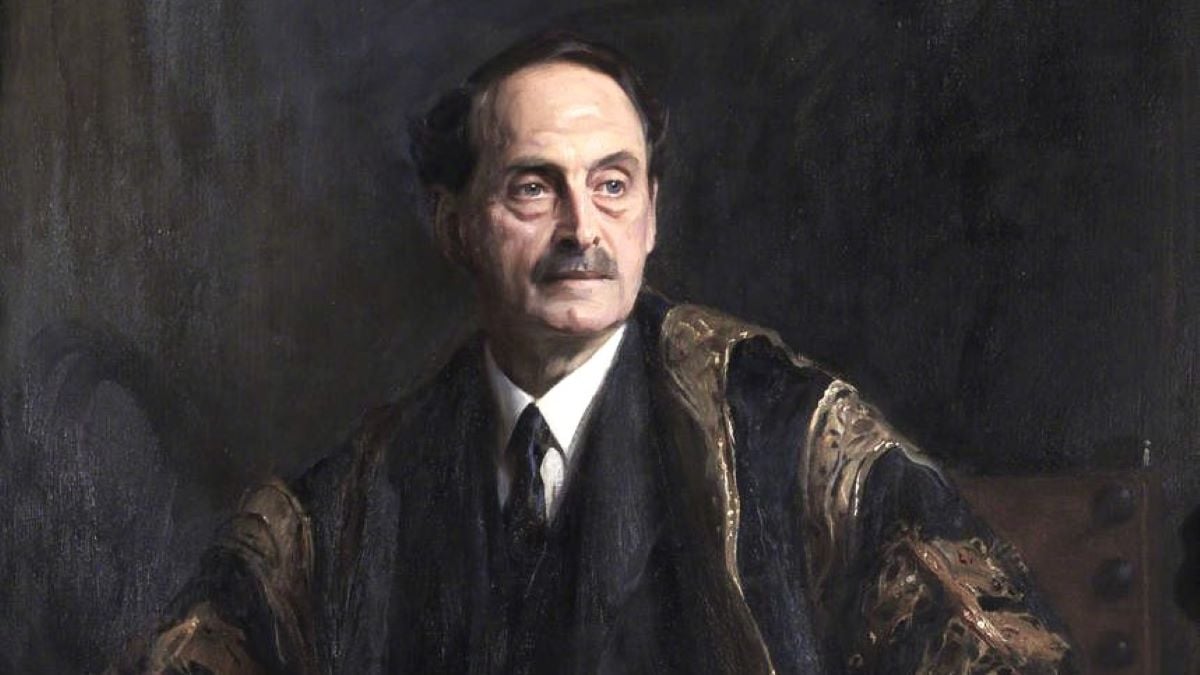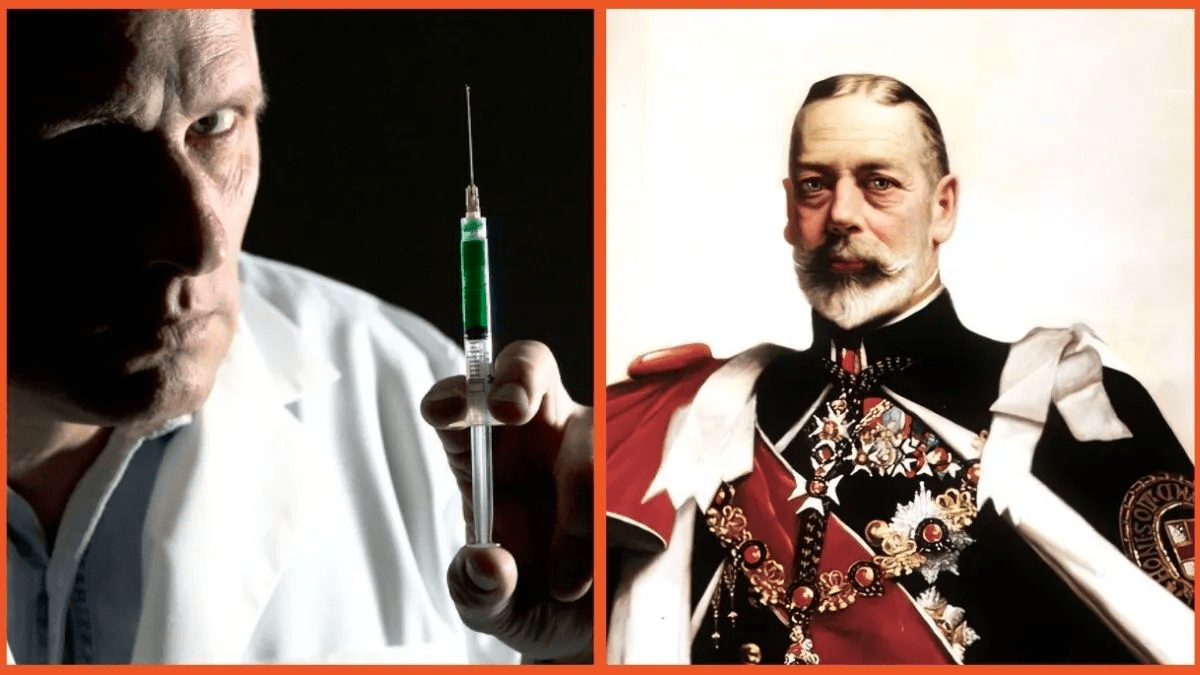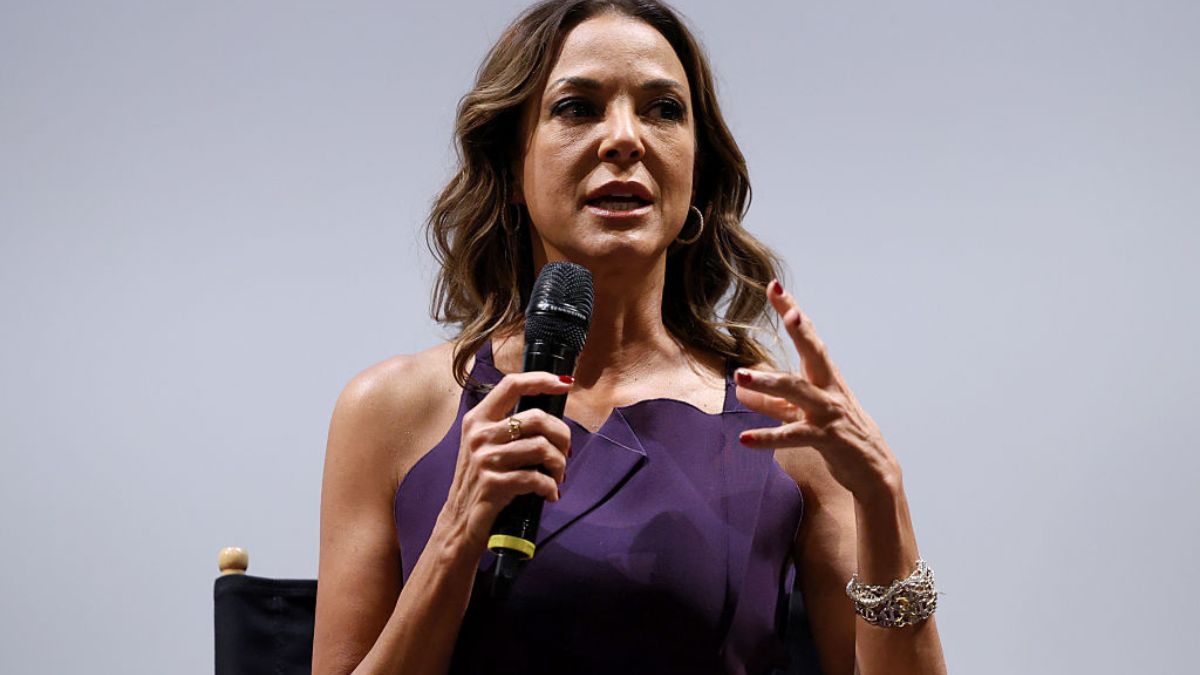The Royal Family has a crack security team protecting them. After all, as the de facto face of the British state, they’re an obvious target. The Crown fans will remember the explosive end of Lord Mountbatten, Princess Anne was almost kidnapped, and just in the last few days, we’ve seen reports of a bomb threat on Buckingham Palace.
But perhaps the real threat to the Royals is already inside the house. So, prepare to hear about a truly bizarre moment in 20th-century British history that the establishment has done its best to quietly sweep under the rug. That being said, let’s talk about the 1936 murder of King George V.
The King’s lungs

King George V’s reign began in 1910 and he naturally became closely involved in World War One, going as far as deciding his family surname sounded too German and changing it from Saxe-Coburg to Windsor. In 1915, George visited the troops in France and was seriously injured after being tossed from his horse. This, combined with his heavy smoking, began to affect his lungs.
Soon after, he was suffering from bronchitis, which eventually led to septicaemia. By 1935, the King was 70, and it was apparent to everyone he wasn’t going to recover. In Jan. 1936, he complained of a cold and went to his room in Sandringham Palace. This would prove to be his deathbed.
Enter Doctor Death

The Royal physician at the time of George’s final days was Dr. Bert Dawson. Or, to give him his full name and title, Bertrand Edward Dawson, 1st Viscount Dawson of Penn, GCVO, KCB, KCMG, PC, FRCP. Other than monitoring the health of the Royal family, he served on the Western Front in World War 1 and in 1920, produced a report that was considered foundational to the creation of the National Health Service in 1948.
He was also quite interested in the subject of euthanasia. Though he spoke out against the practice in public, it will become clear that when he was behind closed doors with a patient he had… a different view.
Murder on the Speedball Express
In 1936, the Royal Family would have considered Dr. Dawson the ideal person to be at the King’s side when he was gravely ill. Trust in him was absolute, so when the King entered cardio-respiratory failure, he was at liberty to treat him as he saw fit. His prescription? A colossal dose of cocaine and morphine that’d fell Keith Richards. Soon after the injection was administered the King died and he duly informed the nation in a special bulletin.
For decades, it was assumed that George’s cause of death was his failing lungs. It wasn’t until 1986 that Dawson’s private diaries were made public. These laid out his thinking in chillingly cold detail:
“Hours of waiting just for the mechanical end when all that is really life has departed only exhausts the onlookers & keeps them so strained that they cannot avail themselves of the solace of thought, communion or prayer.
I therefore decided to determine the end and injected (myself) morphia gr.3/4 and shortly afterwards cocaine gr.1 into the distended jugular vein…In about 1/4 an hour – breathing quieter – appearance more placid – physical struggle gone.”
Dawson confessed he’d killed the King because he was worried the news would break in “less appropriate evening journals” rather than the morning edition of The Times. After all, if he controlled the precise time of the King’s death, he could ensure it’d make the morning news. It was also extremely convenient for his schedule that day. As the British Medical Journal reports:
“The earlier death suited Dawson. Having issued his famous bulletin he had a vested interest in ensuring that death occurred sooner rather than later. At the same time it allowed him to get back to his busy private practice in London.”
Debate on end-of-life care and euthanasia is still raging on, but even the most ardent supporters of the practice aren’t in favor of it being performed without the patient’s consent. So, in 1986 when this story was first revealed, the Royal Family realized to their horror Dawson had murdered the King right under those noses. This was regicide, the highest act of treason possible.
But, incredibly, Dawson got away with it. He lived out the rest of his life as a respected physician and was buried with the honors befitting his station in 1945. However, if he was so willing to kill the King himself, we wonder how many of his lesser well-known patients had their lives unceremoniously terminated at the tip of Dawson’s cocaine needle. Could we secretly be looking at one of the United Kingdom’s most lethal killers?















Published: Oct 10, 2024 09:59 am